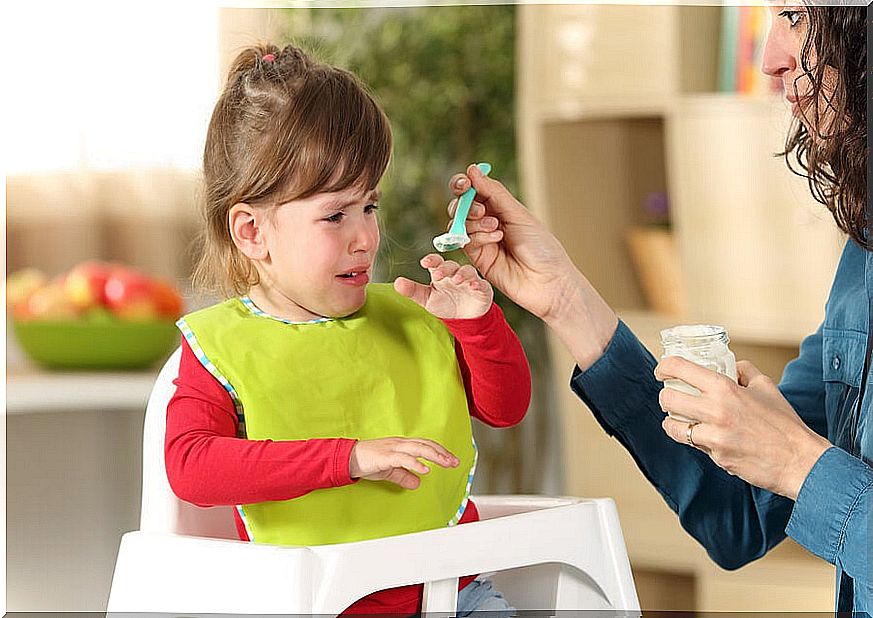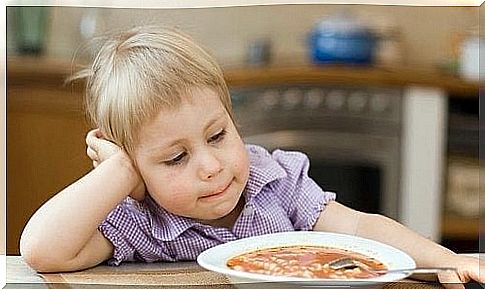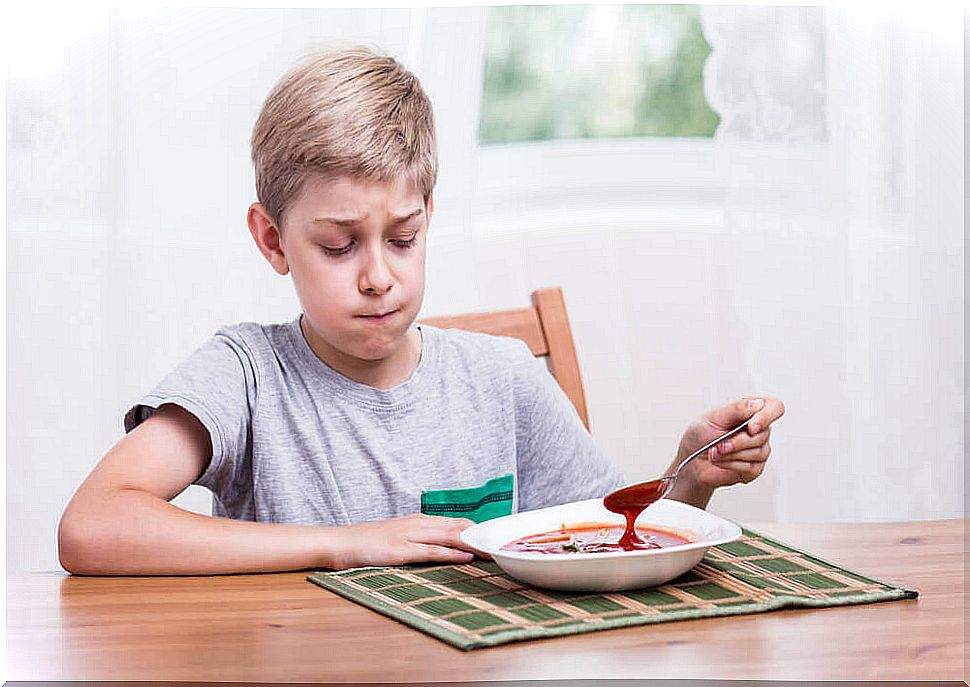What To Do If My Child Does Not Want To Eat

The hypotheses that arise when we ask ourselves what to do if my child does not want to eat are diverse. You may be sick, you may not like food, or it may be an attitude issue. Almost all parents have gone through stages in which we face the refusal of the child. Of course, this fills us with concern.
However, this lack of appetite can have many reasons and possibly most of them do not respond to negative causes. Therefore, we will talk about several aspects that you should consider and possible solutions for your child to finally eat.
What to do if my child does not want to eat
Finding the source of your refusal
The first aspect that we must consider is why the child does not eat. There are multiple reasons for this to happen; many of them are explained from the age of the infant.
- Children between one and five years of age. According to nutrition specialists, when they are one year old, children decrease their ability to eat food compared to previous months. We can come to think that you do not want to eat, but in reality you are satisfied quickly and according to the requirements of your body.
- From six to eight years of life. During these ages, children begin to eat more food ; a fact that coincides with the moment when their physical growth becomes more marked.
- Psychological causes. Very spoiled children may refuse to sit at the table to eat ; It is also often the case that they feel reluctant to eat because they tend to eat snacks and sweets between meals and are satiated.
- Particular diseases. In very specific cases, in their first year of life, children may refuse to eat food due to illnesses linked to the malfunction of the kidneys, lungs or the gastrointestinal system. Always consult your doctor if you have any questions or if you see a permanent rejection of all food.

Solve the problem when my child does not want to eat
Once we know the possible causes, we must focus on what to do to make the child want to eat. As always, it is important to distinguish between the child who is not hungry or the one who does not want to eat the foods that you are offering them particularly.
Remember that you should not overfeed it either. In many cases, even if the portions seem small to you, the child may have reached his maximum capacity and his stomach cannot receive more food.
Helpful tips
Here we will give you a list of simple and practical ideas to reverse this bad habit :
- Serve the appropriate food servings for their age on the largest plate you have at home. This creates a visual effect whereby he will think he is being served very small portions of food and will devour it all.
- Do not allow him to drink juices or water before eating the main dish. If you do, it will fill up easily and you will have no more room in your stomach.
- Turn off the TV and ask him to put his toys away 20 minutes before lunch. This way you will not have distractions and will be able to focus on the act of eating; while you wait, your appetite will be whetted.
- Never use mealtime as the time to argue with him, ask about his school behavior, or scold him. You will condition him to associate mealtime with doomsday time.

- Do not indulge their whims or extravagances. If the child insists on eating in bed or watching television, or if he does not want to eat certain foods, do not play along. You must stand firm, give him his space and wait for him when he is hungry to decide to eat at the table and the food that you provide.
- Avoid giving excess foods rich in sugar, fast foods or fried foods. It is proven that children who eat sweets in excess or foods that include flavor enhancers are later reluctant to eat healthy foods or homemade meals.
Be constant
As a final recommendation, never punish your child if he does not want to eat or force him to do so. Also, do not leave him sitting at the table all day and consider the size of the food portions you serve him. Following these ideas, you will see how easy it will be for your child to eat the amounts that his body needs.










